Welcome to the extended version of “Does Michigan Have a Helmet Law?” In this article, we’ll answer your questions about helmet laws in Michigan and provide useful tips for staying safe on the roads. We know that motorcyclists want to enjoy their rides safely and legally, so let’s dive right into it!
Table of Contents
What Is Michigan’s Helmet Law?
In Michigan, motorcycle riders must wear a helmet that meets the standards set by the Department of State. This means that you must use an approved motorcycle helmet and it needs to have a chin strap. Helmets are also required for all passengers, regardless of age.
It’s important to note that novelty helmets are not allowed in Michigan and are not considered to be compliant with the state’s helmet law. It is also illegal to ride without a helmet if you are under 21 years of age. [1]
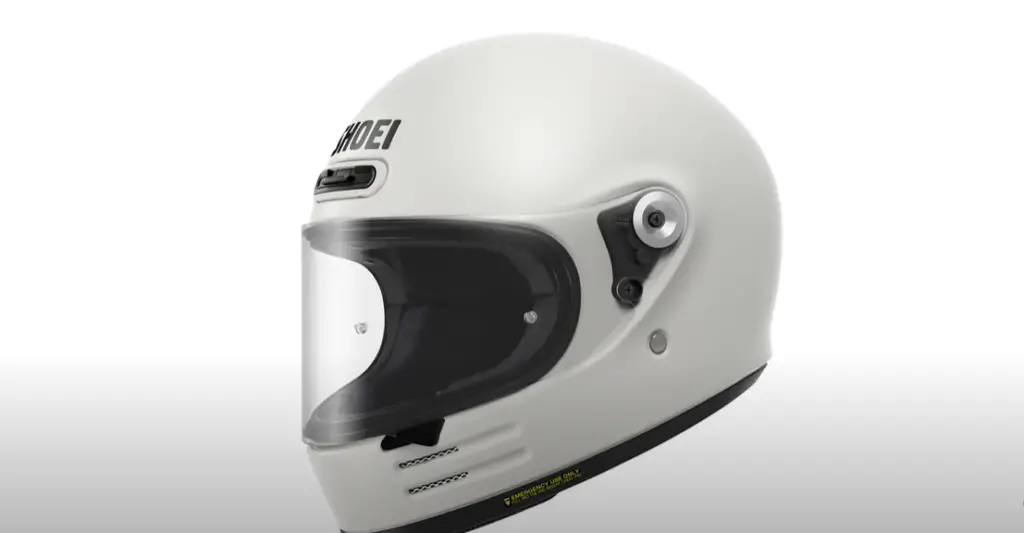
Michigan’s General Rule for Motorcycle Helmet Use
Michigan has a universal helmet law that applies to all drivers and passengers of motorcycles, motor-driven cycles, and mopeds. All riders are required to wear helmets at all times while riding on the roadways, regardless of age or experience level. Helmets must also be approved by the state Department of Transportation (DOT). [1]
Are There Exceptions to Michigan’s Helmet Law?
In certain cases, riders may be exempted from having to wear a helmet. Motorcycle drivers and passengers who are over 21 years of age can apply for a Michigan Safety Helmet Exemption Certificate if they meet certain criteria. To qualify for an exemption, applicants must:
- Have held either a valid motorcycle operator or chauffeur’s license for at least two years before applying;
- Have taken an approved motorcycle safety course within one year before applying or have successfully completed a Department of State motorcycle driver education program;
- Present proof of insurance coverage in the form of a valid insurance identification card. [2]
Complying with Michigan’s Insurance Exception
Michigan’s helmet law allows some motorcyclists to ride without a helmet. The insurance exception applies to riders who have been licensed for at least two years and also have insurance coverage of at least $20,000 for each person involved in an accident and $40,000 for the total amount of all people injured or killed in the accident. [2]
When Did Michigan Repeal Its Helmet Law?
In April 2012, Michigan repealed its universal helmet law. Prior to this decision, the state’s helmet law required all motorcyclists and passengers to wear a Department of Transportation (DOT)-approved motorcycle helmet while riding. The repeal of the universal helmet law does not mean that Michigan residents are now free to ride without protection; instead, it now means that only riders over the age of 21 are allowed to choose whether or not they want to wear a helmet while riding.
If you’re under the age of 21, you must still wear a helmet when operating a motorcycle in Michigan. It’s important to note that any DOT-approved motorcycle helmet will suffice; there are no special requirements you must meet in order to meet the law’s standards. [2]

Is Michigan’s Helmet Law Constitutional?
The helmet law in Michigan has been the subject of much debate and discussion. Some people believe that the law is a violation of their constitutional rights, specifically those found in the First Amendment. As of this writing, though, it appears that Michigan’s helmet law is legal and constitutional.
In 2011, the Supreme Court of Michigan upheld the helmet law in a 4-3 decision. The majority opinion stated that the law was constitutional, as it did not conflict with any federal laws or Michigan state statutes. The court also found that there were enough health and safety benefits to justify the law. [1]
Is Eye Protection Required for Motorcyclists in Michigan?
In Michigan, eye protection is not required for motorcycle riders; however, wearing goggles or a face shield is highly recommended. Doing so can help protect your eyes from the wind, dirt and debris that may come into contact with you while riding. It’s important to be aware of the visibility you have when wearing a helmet with no eye protection and make sure you are able to clearly see in front of you.
If you choose to wear a full-face helmet while riding, some models come with a built-in face shield that can offer additional protection for your eyes. You may also choose to purchase goggles or a separate face shield if your helmet does not have one. Whatever option you choose, make sure it meets the standards set by the U.S. Department of Transportation Federal Motor Vehicle Standard 218 (FMVSS 218). [3]
What Is the Penalty for Operating a Without a Helmet in Michigan?
If you are caught operating a motorcycle without a helmet in Michigan, you will be subject to a fine of up to $100. This can include fines for failing to wear any kind of eye protection, including sunglasses or goggles. If a rider is cited multiple times for violating the state’s helmet law within three years, he or she could face an additional fine of $200 and the possible suspension of their license.
It is important to note that penalties can vary significantly depending on the county in which an individual is riding. For example, some counties may impose stiffer fines or other punishments for failing to wear a helmet while riding. Additionally, anyone caught operating a motorcycle without a helmet could also face a civil lawsuit if another person is injured or killed as a result of their negligence. [3]
Michigan Helmet Laws and Car Accident Compensation
Michigan helmet laws are in place to keep motorcycle riders safe and ensure that they can receive proper compensation for any injuries sustained during a car accident. In Michigan, all motorcyclists must wear an approved helmet while operating a motorcycle. Additionally, passengers must also wear helmets. Motorcycle helmets protect riders from head trauma should they be involved in an accident.
If a motorcyclist is injured in an accident, the victim may be eligible for damages from the at-fault driver’s insurance company. However, Michigan motorcycle helmet laws may have an impact on this compensation. If a person does not wear a helmet during an accident, and then sustains head injuries as a result, the court may reduce or deny compensation. This is because the lack of a helmet contributed to the severity of the injury, and thus, decreased the amount of damages that can be claimed. [3]
Comparative Negligence and Motorcycle Accidents
In Michigan, the concept of comparative negligence is also important when it comes to motorcycle accidents. This means that if a motorcyclist was partially at fault for an accident, their damages can be reduced depending on how much they contributed to the accident. Additionally, if a rider is found to be more than 50% liable for an accident, they may be barred from recovering any damages at all.
It is important to note that comparative negligence applies to motorists as well, not just motorcyclists. So if a driver was partially responsible for an accident involving a motorcycle, their damages can also be reduced depending on their level of fault in the accident. [2]
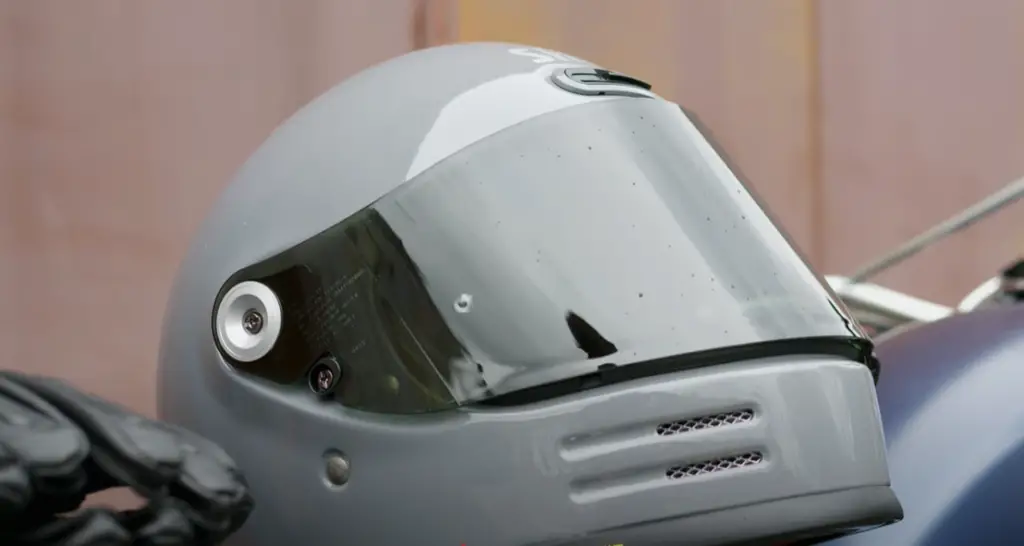
Not Wearing a Helmet and Claiming Compensation
If you have been in an accident without wearing a helmet, you may still be entitled to compensation for your injuries. The amount of compensation you receive will depend on the severity of your injuries and any other damages or losses caused by the accident. You can file a claim with the at-fault driver’s insurance company or take legal action through a personal injury lawsuit. It is important to note that if you have been found at fault for the accident, your claim may be denied or reduced. [1]
Do Motorcycle Helmets Save Lives?
Yes, motorcycle helmets can save lives. According to the National Highway Traffic Safety Administration (NHTSA), wearing a helmet is the single most effective way to reduce head injuries and fatalities resulting from motorcycle crashes. A study conducted by the Insurance Institute for Highway Safety (IIHS) found that states with universal helmet laws have lower motorcyclist death rates than states without these laws.
The NHTSA estimates that helmets saved the lives of 1,859 motorcyclists in 2017 alone. This number could have been even higher if all riders had worn helmets. The IIHS also estimated that helmets saved 740 lives in 2018. Wearing a helmet can reduce the risk of death by nearly 40%. [1]
Reasons to Always Wear a Helmet
It is important to wear a helmet while riding a motorcycle or bicycle in Michigan. Even if there isn’t a law requiring you to do so, there are multiple reasons why wearing the right protective gear can help reduce your chances of serious injury or death in the event of an accident.
- Protect Yourself From Injury: A helmet is designed to reduce the risk of serious brain and head injuries should you be involved in an accident. Always make sure your helmet is certified by the United States Department of Transportation (DOT) or equivalent, as these are designed to meet certain safety standards that will help protect you.
- Protect Yourself From Liability: If you are involved in an accident and you are not wearing a helmet, you may be found liable for any head or brain injuries resulting from the incident. It is also important to remember that if someone else was involved in the accident, they could sue you for their injuries if it is determined that your lack of a helmet caused or contributed to the severity of their injury.
- Be a Good Example: By wearing a helmet, you set a good example for other riders and encourage safe practices. It is important to lead by example and show others that it is possible to ride safely with the right protective gear. [1]
Enforcement of Michigan’s Helmet Law
Enforcement of the Michigan helmet law is left to local police and state troopers. The penalty for violating the law is a fine. In many cases, the first time someone is caught without a helmet, they are simply given a warning and asked to put on a helmet if they have one with them.
It’s important to note that the state of Michigan does not require you to wear a helmet while riding or operating a bicycle. However, if an officer believes that a cyclist is in violation of another law (such as running a red light), they may choose to ticket the cyclist for not wearing a helmet. [2]
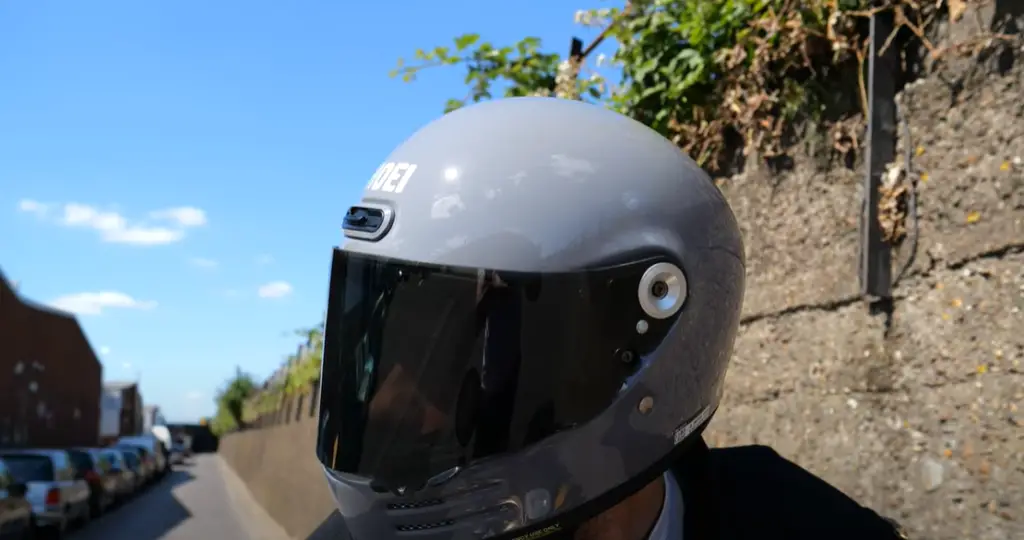
What You Need to Know About Helmet Laws for Children
One of the most important parts of keeping your child safe while riding a bike is making sure they are wearing the proper safety equipment. In Michigan, all children under the age of 18 must wear an approved safety helmet when operating or riding on a bicycle.
When shopping for a bicycle helmet there are several things you should consider, such as fit, ventilation and weight. The most important factor is that the helmet fits snugly on your child’s head and covers their forehead, ears, and back of the neck. You should also be sure to purchase a helmet that meets Consumer Product Safety Commission (CPSC) standards. [1]
Vehicles to Which the Motorcycle Helmet Laws Do Not Apply
The Michigan helmet law does not apply to riders operating motorized bicycles, two-wheeled motorized scooters, or mopeds. These vehicles are considered low power and are thus exempt from the requirements of the state’s Motorcycle Helmet Law. However, operators of these vehicles should still wear a properly fitted helmet to ensure their safety as much as possible.
Additionally, riders of three-wheeled motorcycles are exempt from the law as long as they are over 16 years old and have successfully completed a motorcycle safety program approved by the Michigan Secretary of State. Riders should still wear a helmet for their own protection, but it is not required by law. [1]
What Is The Difference Between Certified And Non-Certified Helmets?
When it comes to motorcycle helmets, there are two types – certified and non-certified helmets. Certified helmets have been tested and approved by the Department of Transportation (DOT), meeting strict safety standards for impact protection. Non-certified helmets don’t meet these standards and can’t be legally worn on the road in Michigan. [3]
Who Is Liable In A Motorcycle Accident?
If you’ve been involved in a motorcycle accident, it’s important to understand who may be liable for damages. In Michigan, fault or blame must be determined before any compensation can be awarded. The party responsible for the accident is generally held accountable for the resulting injuries and property damage.
Two general principles of negligence law determine who is at fault in a motorcycle accident. The first is that individuals have a duty to exercise reasonable care when operating motor vehicles. This means they should obey all traffic laws, be aware of their surroundings and drive with caution.
The second principle states that if someone breaches the standard of care and causes harm to another person, they can be held liable for any resulting damages. In a motorcycle accident, this may include medical expenses, lost wages and other losses. [3]
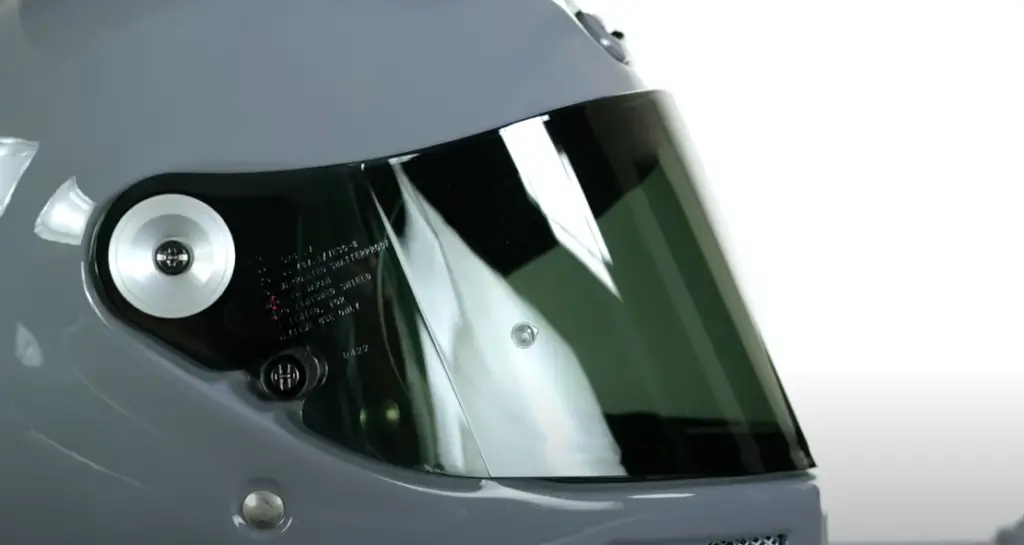
Is Choosing Not To Wear A Helmet Considered Negligence?
No. Choosing not to wear a helmet is not considered negligence in Michigan, however, it may be used as evidence in the case of a personal injury lawsuit or criminal prosecution. For example, if an individual suffers serious head injuries after a motorcycle accident and wasn’t wearing a helmet, that could be seen as contributory negligence and could lead to a decrease in the amount of damages that individual is entitled to. [3]
Are Helmets Effective In Preventing Injuries?
Yes, helmets are effective in preventing injuries. According to the Centers for Disease Control and Prevention (CDC), wearing a helmet when riding a bike reduces a person’s risk of head injury by nearly 70%. Research also shows that wearing a properly-fitted motorcycle helmet can reduce the risk of death by 37% and serious brain injury by 67%. [2]
Other Ways To Prevent Motorcycle Injuries
It is important to make sure that you have taken the necessary steps to keep yourself and others safe while riding. Here are some helpful tips:
- Choose an appropriate speed for the terrain, conditions, and visibility.
- Be aware of and obey all the posted speed limits.
- Allow plenty of room between yourself and other drivers on the road.
- Always keep your eyes on the road ahead, be prepared for unexpected road hazards, and scan for cars merging into traffic.
- Make sure your motorcycle is in good working order before every ride and make sure to inspect your brakes and tires before starting.
- Do not drink or take drugs before or while riding.
- Wear the right gear. Always wear a helmet, eye protection, boots, long pants and sleeves, and gloves.
- Be aware of the weather conditions and plan accordingly. Check the forecast and dress appropriately.
- Be extra cautious at night, as visibility is much lower and the roads are less traveled.
- Stay alert and pay attention to other drivers on the road.
- Never ride beyond your own skill level or comfort zone. Make sure you do not take unnecessary risks while riding.
- Make sure you obey the laws of the roads and follow all traffic regulations. [1]
FAQ
Which US states do not require motorcycle helmets?
In the United States, only 19 states and the District of Columbia have universal helmet laws that require all motorcycle riders to wear a helmet. These states are Alabama, California, Georgia, Louisiana, Maryland, Massachusetts, Mississippi, Missouri, Nebraska, Nevada, New Jersey, New York, North Carolina, Oregon, Tennessee, Vermont and Virginia.
When did Michigan repeal the helmet law?
Michigan repealed its helmet law in 2012, making it an optional requirement for riders over the age of 21.
What is the motorcycle law in Michigan?
In Michigan, motorcycle riders are no longer required to wear helmets if they are over the age of 21 and have at least $20,000 in personal injury protection insurance. However, all riders regardless of age must wear eye protection while riding. Additionally, passengers under the age of 21 must always wear a helmet.
How much is a no-helmet ticket in Michigan?
The fines for not wearing a helmet in Michigan range from $65 to $200. In addition, riders found riding without a helmet can be charged with a misdemeanor, which can lead to jail time and additional fines.
Useful Video: Michigan’s Motorcycle Helmet Law
Conclusion
In conclusion, Michigan does have a helmet law that requires all motorcyclists to wear helmets on public roads. This law was passed in 1969 and has been amended several times. The current version of the law states that helmets must meet or exceed Department of Transportation standards and have a chin strap securely fastened when riding. It is important for riders to be aware of their state’s helmet laws to stay safe on the roads. Additionally, riders should always wear protective gear such as gloves and boots, even if they are not required by law. By following these rules, motorcyclists can enjoy a more relaxed and enjoyable ride while also ensuring their own safety. Thank you for taking the time to read this article and for learning about Michigan’s helmet law. Ride safe and have a great time!
References:
- https://www.michiganautolaw.com/motorcycle-accident-lawyer/michigan-motorcycle-helmet-law/
- https://www.goodmanacker.com/blog/michigan-motorcycle-helmet-law/
- https://sinasdramis.com/michigan-motorcycle-helmet-law/

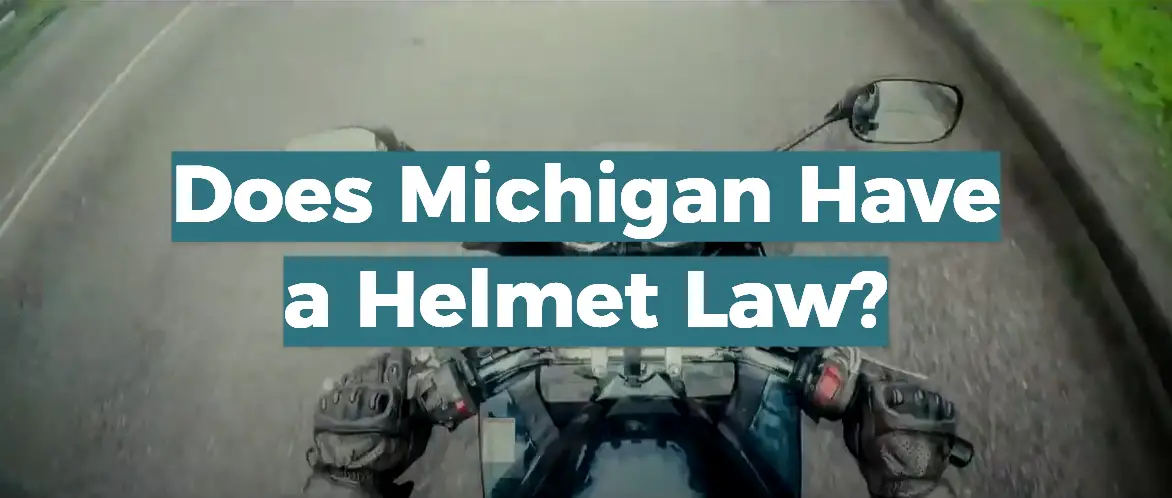
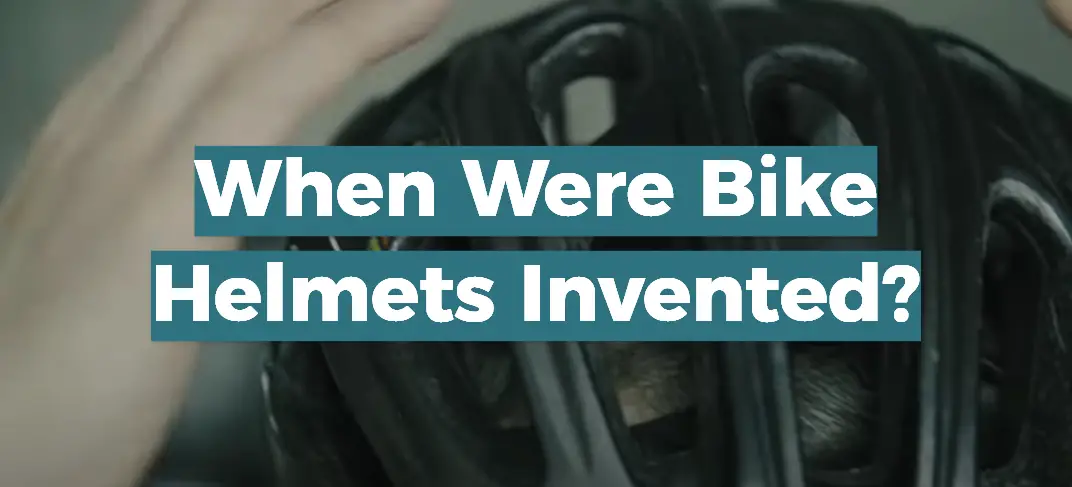
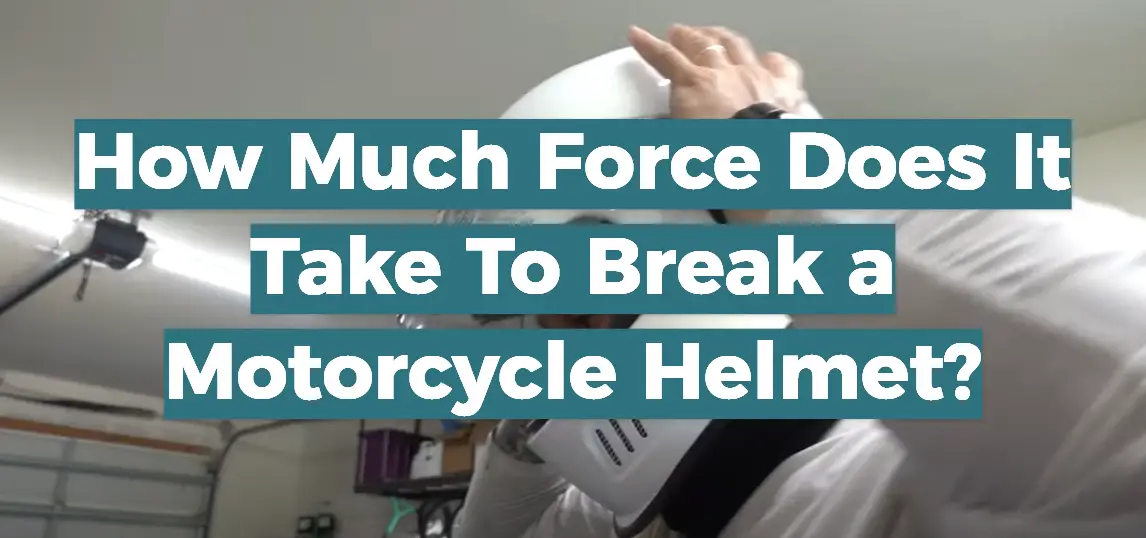

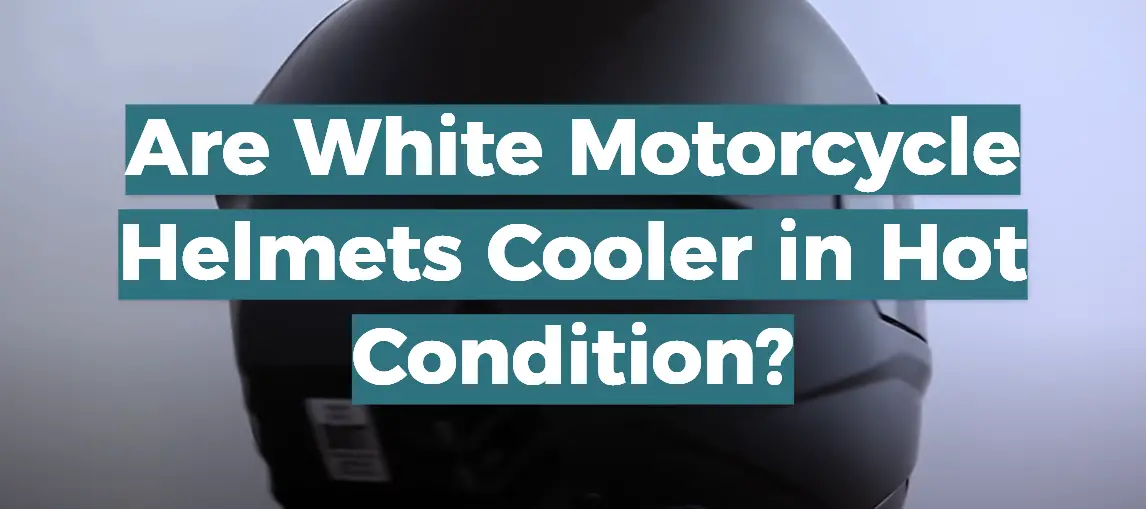
Leave a Reply